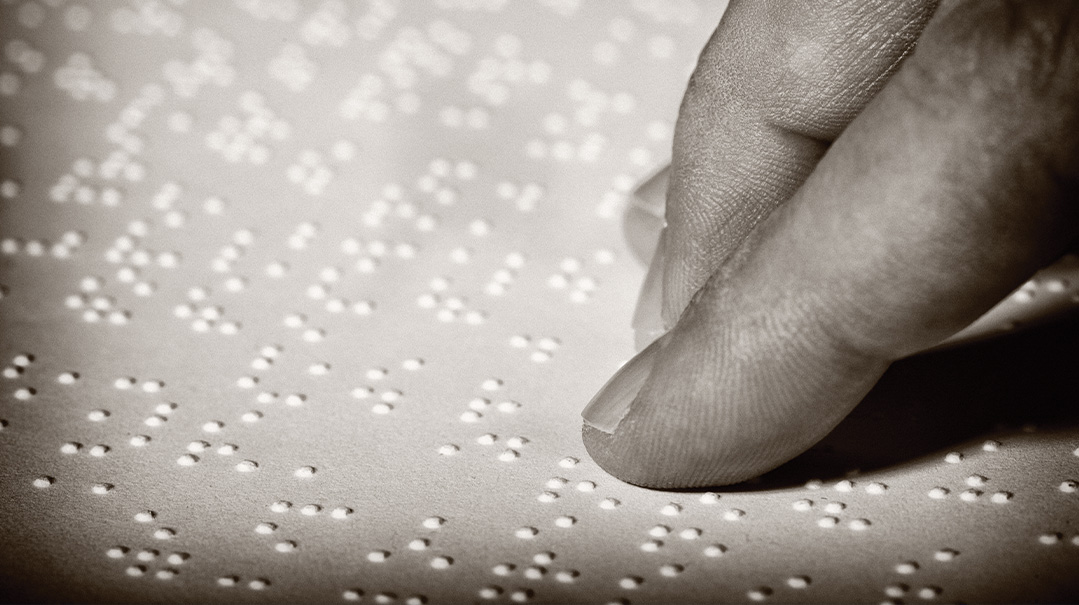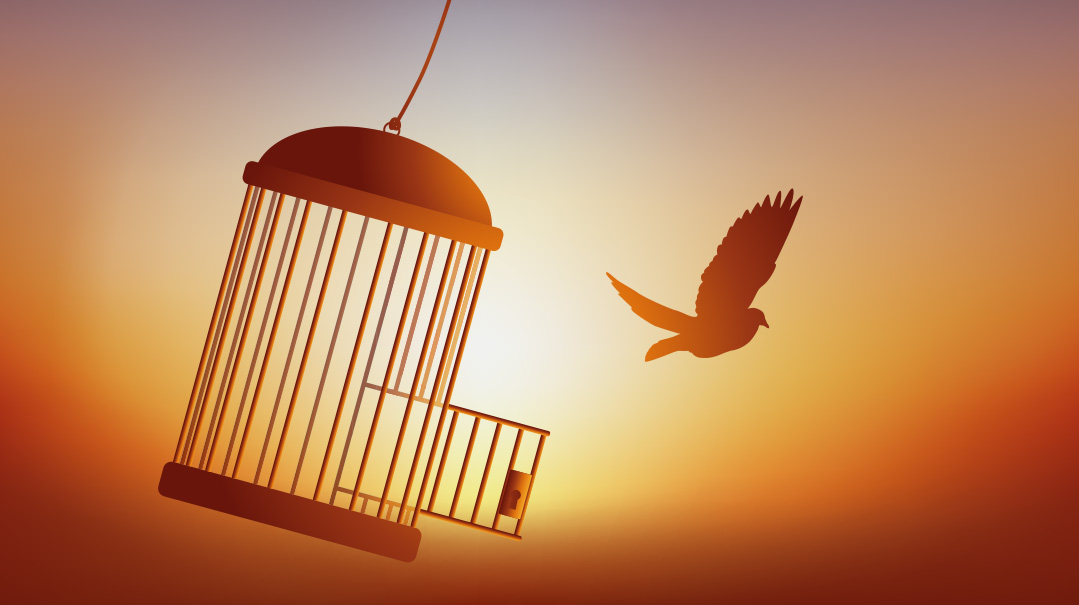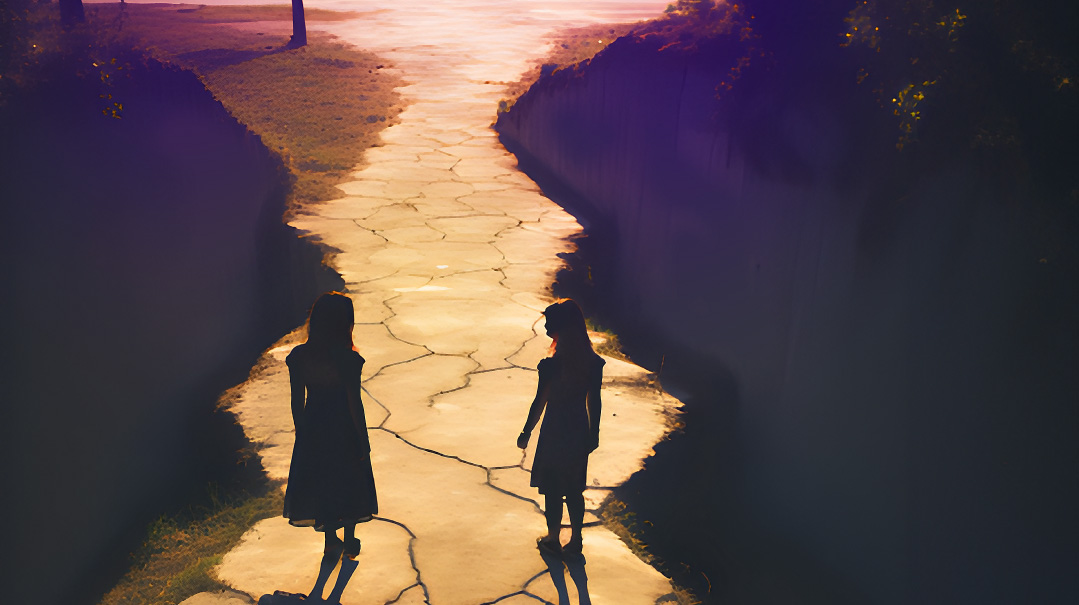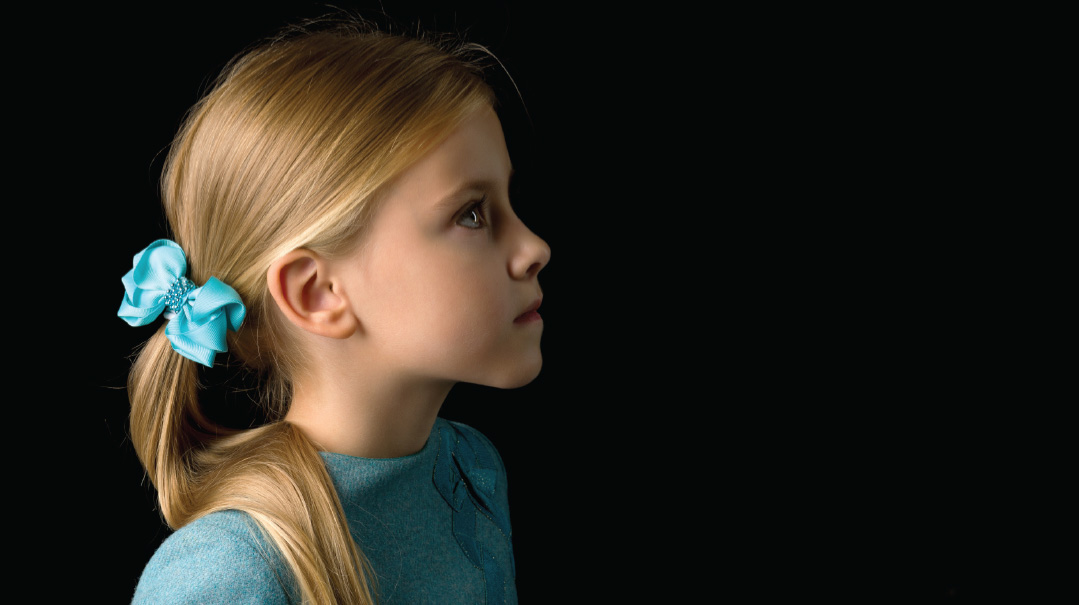In Sight

An estimated 1.1 million of Americans are classified as legally blind, so my life is hardly unique

“C
hani, did your mother see your project?” The voice of my fifth-grade teacher dripped with disapproval.
“No, she didn’t,” I replied, staring straight back at her. “She can’t see.”
My mom is blind. She lost her vision when she was a young child, and has not seen me or my siblings ever. Needless to say, she had not seen my fifth-grade science project.
People who know me will often ask what it’s like for me to live with a blind mother, and I’m often a little unsure what they want to hear. The answer, to me, is one word: Normal. I’ve never had a mother who could see, but what I do have is a mother who has brilliant hearing, a fantastic sense of smell, and a fierce confidence that when we have challenges, we can overcome them. Maybe she can’t see, but my mother has greater vision than most people I know.
The questions I get range from innocent to ridiculous. People will ask what I eat — umm, food? And how my mother drives — she doesn’t, and that’s hard. But harder than some of the challenges that living with a parent with a disability brings are the questions. I’ve definitely grown a thicker skin over time, and I also try and let people know before they meet my mother, so they don’t get confused when they hear me telling her to step up or down from a curb, or how to find the pepper which is right in front of her.
An estimated 1.1 million of Americans are classified as legally blind, so my life is hardly unique. However, we Yidden have larger families and multiple Yamim Tovim, all which come with their own considerations for someone with disabilities. Take Pesach, for example. My mother can clean wonderfully, but she cannot always tell where there may be chometz or not. So two weeks before Yom Tov my father takes a week off work, and I get afternoons off school to help her. We work together, the music blasting and cloths and rags everywhere, while my father and I instruct my mother where to clean next. It might be different, but it does work!
Then there are things like Chumash plays and Siddur parties. Of course my mother comes and claps along with the other mothers, but she will often need one of her friends or my aunts to go with her, to help her manage getting to her seat and follow what’s going on. People who don’t know my mother sometimes get irritated by my aunt’s steady stream of commentary about what’s happening. When this happens, my mother often turns and smiles, and explains, “I have vision loss, I’m sorry we’re disturbing you, but I’ll need some help while I’m here today.” This open and honest way of speaking can make other people feel slightly uncomfortable, but is also my mother’s way of owning her challenges. She doesn’t pretend she doesn’t need help, but instead states it clearly. As a kid, I used to find it embarrassing. As a teen, I’m slowly starting to appreciate and respect it — it’s not every day that you get to see people so confident about their challenges.
Shopping is yet another hurdle. I like to go with my mother, because she’s great company and helps me make decisions. Still, it’s hard to stand in the mirror looking at myself while she asks me how I think I look. I definitely have bought things I regretted buying without a second opinion, and I do sometimes need to ask a friend to come and tell me what she thinks. Sometimes it drives me crazy — I wish my mother could do what other mothers do. But then I also have moments where I realize that it’s precisely because she can’t do everything other people can, that she can do other things instead.
The most recent example of this was when we went on a family vacation this summer and decided to go on a walk. My siblings and I took turns staying with my mother at the back, while the others raced along, finding interesting stones, eating loads of nosh and singing annoying songs which went on and on. It was all going really well until we suddenly realized we didn’t see my six-year-old brother, Chezky.
“He was here a few minutes ago,” Daddy said, sounding unfazed, though his eyebrows were furrowed. “Yeah, here’s his Bamba bag,” Ruti chortled. We laughed, but there was tension in the air. Chezky is quite little and doesn’t know much about danger. “How about we walk on a little quicker and see if he’s just in front of us?” my mother suggested. So we did. We called his name and looked around large tree trunks, half expecting Chezky to jump out and yell boo, but there was no sign of him. Ruti began to sniff quietly to herself, and my mother leaned over to give her a hug. Daddy started to mumble Tehillim. “He must be here somewhere,” he said. His words came out half-strangled.
The next five minutes or so felt like ages. A branch cracked nearby and we all stopped suddenly, but it was only a small bird, staring beadily down at us as we bumbled our way along. Shmuel moaned that he was tired, Ruti’s feet were dragging. My parents stopped and spoke to each other in low whispers. Suddenly, Mom paused and said, “Stop. Listen.” We all paused and listened. At first, there was nothing except Shmuel’s congested breathing and the scuttling of a nearby squirrel. I was just about to say something when Mom held up her hand and then pointed. “Chezky?” she shouted. A shout came back and then a little tear-faced boy came running between the trees and hurled himself at my mother. We all collapsed onto the ground in relief. Who says blind mothers can’t search for lost children?
My friends also used to think I could get away with things they can’t. After all, if my mother can’t see, they reasoned, how did she know if I was eating a Shabbos treat on a Tuesday, or if I threw away my vegetables so I could have a cookie? “You haven’t seen my mother in action!” I would laugh. “She hears, smells, and knows EVERYTHING!” Like the sound of a piece of cucumber hitting the garbage can. Or the tiniest rustle of the sour sticks package. Or the waft of her perfume on my sweater. So no, I do not get away with everything, and my mother is as on-the-ball, if not more, than yours!
One of the things I want to share with people is how amazing my mother is, and how it hurts me when people don’t treat her that way. Sometimes, in shul or at events, people will ask my mother questions louder and slower, or will bend down and whisper, the way you would speak to a little child. This is not only embarrassing for me, but also deeply mortifying for my mother, who is an intelligent, capable, and organized person, who has an immense amount of knowledge and life experience. Just because someone has a disability, that does not mean they are not just as capable as you are.
The other thing my mother has taught me about the world is that externals are just externals. My mother cannot see how our Shabbos guests are dressed or admire people’s kiddushim, weddings, or Bar Mitzvah tablescapes. But what she can and does do is admire people’s personal qualities. My mother is the first one to point out someone who is kind, caring, or generous. She has never praised the way I look, but she has told me time and time again how organized she knows I am, and how hard I work to achieve my best. What upsets her most is when she hears people being judged by the way they look, or for the model of their car, or décor of their house. “It’s the inside that counts,” she’ll often say, and though I roll my eyes and still work hard to buy the “right” clothes or shoes, knowing that she will always accept me is something I wouldn’t want to lose.
I do wish my mother could see. I think ahead to all the milestones I hope to reach — my wedding, having children, my sibling’s weddings — and I get sad thinking that she’ll never be able to tell me how beautiful I look in my wedding gown, or how similar my kids look to me. I also wish for her sake that her life would be easier and that she didn’t have to go through so much embarrassment and challenges to do things that other people do easily. And yet, when I can, I stop and thank Hashem for the insight having a blind mother has given me. For helping me see her strengths and those of others. And for giving me the gifts of not taking my own sight for granted, and of opening my eyes each morning to see another day.
(Originally featured in Teen Pages, Issue 947)
Oops! We could not locate your form.







